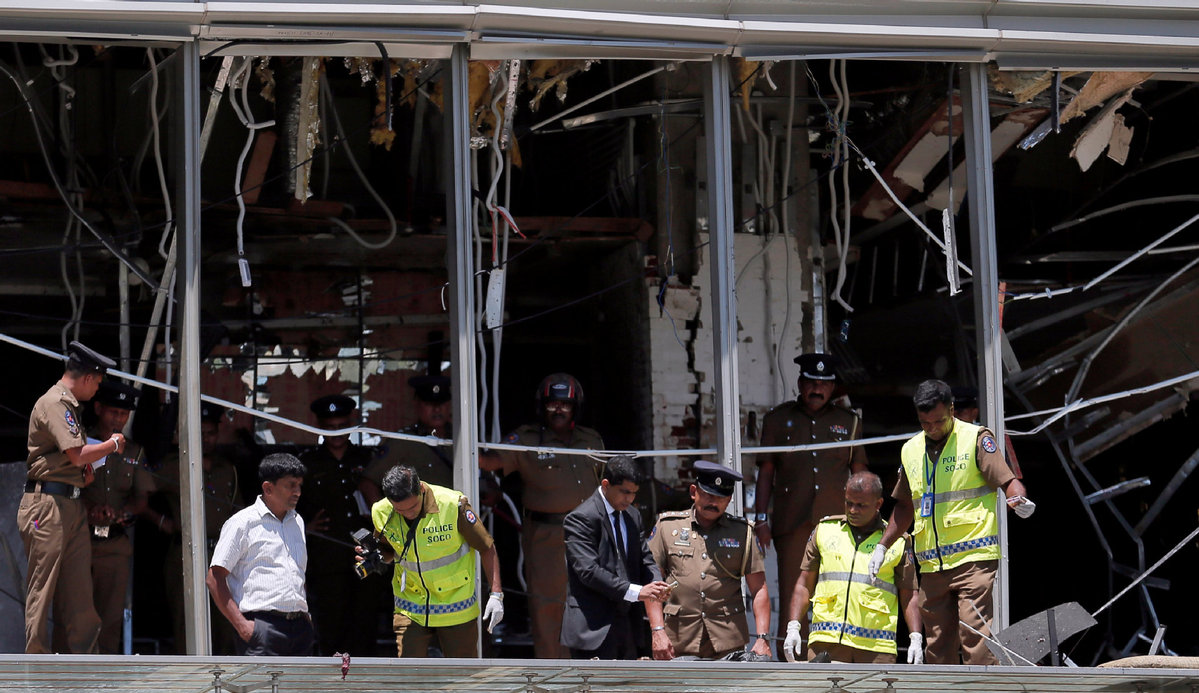What can countries learn from the Sri Lankan blasts?
By Zhang Zhouxiang | chinadaily.com.cn | Updated: 2019-04-22 08:11

When I started writing this article, there had been seven blasts in Sri Lanka and the death toll was 187.
Yet, by the time I had finished talking with two experts, just a little while later, another blast had happened and the number of people killed had reached 207.
By Monday morning, as the article gets published, it rose again to 215.
The eight blasts on Sunday cast the shadow of terror over the whole of Sri Lanka. The fact that two Chinese citizens are confirmed dead in the blasts made Chinese people share the feelings of Sri Lankan people and their hatred of terrorism.
The question now is what to learn from the eight blasts that Sri Lanka suffered so as to prevent them from happening again in any corner of the world. So far no organization has claimed responsibility for the attacks, but Ruwan Wijewardene, Minister of Defense of Sri Lanka, has already confirmed one of the suspects as a religious fundamentalist.
Actually, as Zhu Sumei, a professor at the International Politics Department of the University of International Relations, observed even before he released that information, the shadow of religious extremism could be seen behind the attacks because at least three of the eight blasts happened in churches, and the day of the attacks is Easter Sunday, an important Christian festival.
Needless to say, the eight blasts in Sri Lanka send a warning to the whole world to stay more united in the fight religious extremism. In past practices, certain Western countries tended to impose a double standard on terrorism and only view those religious extremists that threaten their own security as terrorists. However, the religious extremists have formed networks across national boundaries. It is time for different countries to join hands more tightly to tear apart these terror networks and fight religious extremism more efficiently.
Besides, technically speaking, the control of guns and explosives must be strengthened to prevent terrorist attacks on such a large scale, said Gong Honglie, an associate professor on anti-terrorism studies at Nanjing University. In order to launch eight blasts in one single day, the terrorists must have prepared large quantities of explosives, which is a very difficult mission in any country with strict control of guns and explosives.
Yet in Sri Lanka, the control over guns and explosives is rather loose. In December 2018, a shooting killed four and injured five in the country; In February 2017, even a prison bus suffered from gun attacks, which killed seven.
Some might argue that this time it was suicide attacks and explosives, not gun attacks, but do not forget that loose gun control means loose control of explosives, too.
It is to be hoped the world will learn from the Sri Lankan blasts to prevent such an atrocity happening elsewhere.























